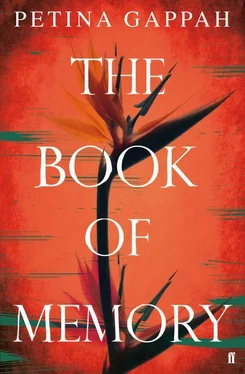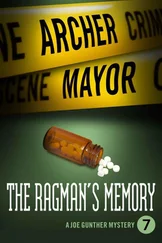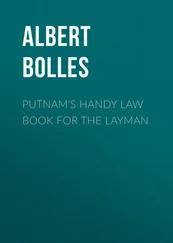I thought at first that writing all of this down for you would be difficult, but the memories are flooding my mind, faster than I can write them down. Mobhi’s feet, the soil of Mharapara Street on her soles, stick out from the bucket of her death. Copperplate thunders across the Umwinsidale downs. Lloyd and Zenzo’s laughter becomes the voice of the Baptist telling me to reject Satan. The waters of the Mukuvisi close over my head as I scream in terror.
The memories have been coming since I have been here. Long before Vernah Sithole asked me to write it down for you, I have had yawning space in which to do nothing but think and reflect. There is nothing to do here in those twelve dead hours between four thirty in the afternoon, when we are locked up for the night, and four thirty in the morning, when the siren goes. Except for the Bible, there is nothing to read, and there is no one for me to talk to because I have my own cell.
We are allowed to take our Bibles back to our cells, but Synodia does not often let me take mine back with me. My very existence irritates her. She hates that I speak English, she hates that I once lived with white people, she hates that I studied outside the country, she hates that I am here for murder.
So I reflect on my life, to rework the events that brought me here, to rearrange and reimagine them in an endless cycle of what-ifs.
Jimmy Blue Butter envies my old life with Lloyd. She envies Summer Madness, the house that her imagination has transmuted into a mansion of monstrous proportions. She does not understand how someone who once lived in such a mansion can so calmly sleep on a mattress on the floor of a prison cell or eat bread with green mould on it. She does not understand how I can stand with the others repairing the condemned goods in the dirty storage room we call the Condemn, or how I can stand hour after hour in the laundry, washing and ironing the clothes of the guards who insist that we call them by the affectionate term Mbuya Guard even as they exercise their petty tyrannies over us.
I would like to tell her that poverty holds no terrors for me, because I have known it and I have conquered it. I want to tell her, but I am not sure that she would ever understand it, that even the big mansions hold their secret miseries. I would like to tell her that they hold more of them because there is more room for them.

They still come to me sometimes, my father and my mother. They come to interrupt the rhythm of my waking moments, they come unbidden when I am in the laundry room or the Condemn, when I am singing hymns under Synodia’s direction before breakfast. They come into me in the prison garden when my thoughts are on something else and I have not willed them into my mind. They come with my sisters, Joy, whom we called Joyi, and Moreblessings, called Mobhi. They come with my brother, Gift, whom we called Givhi.
Until you attempt to write the story of your life, you cannot quite understand just how hard it is to grasp at the beginning. I wish I could start this the traditional way, by telling you all about my father and mother and how they met and who their parents were and all the begats that preceded their lives, but I cannot. Until they sold me to Lloyd, and I moved away, I knew nothing about them beyond the fact that they were my mother and father.
The ritual of oral autobiography here is that we introduce and begin stories by locating our position in the family. ‘I am the eldest in a family of seven.’ ‘I am the last-born in a family of four.’ ‘I am the middle child in a family of seven; two died, and only five are living.’ Identity begins in that one sentence: I am the first, the middle, the fourth, the second, the last.
So perhaps my proper beginning should be there. I was the second child in a family of three. The eldest was my sister Joyi, who was an equivocation in that she was the oldest living child but not the first-born child. That sainted place, of coming first, and thus bestowing the name by which my parents would for ever be known, belonged to my dead brother, Gift.
My mother and father were called MaiGivhi and Ba’Givhi, but instead of a living Gift, there was my sister Joyi, who was a year and a few months older than I was, then me, then Mobhi, the youngest, who was only four when she died.
When they come to me, they come as I remember them, except Givhi, who was only ever a name to me, or at most a small blurry face in the black-and-white photographs in my mother’s album. He comes to me as a form without shape, wrapped in the green blanket with dark-grey stripes at the edges, the blanket that was also his shroud. When he comes to me in my dreams, he is drowning. Sometimes we are drowning together. I reach for him, but the Chimera pulls me down, down, down … It will not let me go and I see him no more.
Joyi is small and fast with skin like heated caramel. She comes with the voices of the children on Mharapara Street. From the spare bedroom, I can hear the songs to their favourite games. ‘Tinotsvaga maunde, maunde, maunde. Tinotsvaga maunde, masikati ano.’ ‘Tauya kuzoona Mary, Mary, Mary. Tauya kuzoona Mary, Mary, Mary woo.’
Mobhi comes on fat toddling legs, behind her a trail of water. Up in the air she goes, she laughs, then down she comes. My father catches her and throws her up again. The world seems to shake with her laughter.
My father comes with the voices from his wireless radio set, with ‘Mirandu’ and ‘Sina Makosa’, with ‘Sweet Mother’ and ‘Celebration’, with the lugubrious music that preceded the announcements on the death notices programme, Zvisiviso Zverufu , and with the joyous greetings on Kwaziso .
He comes with Evans Mambara’s voice rising to a staccato of excitement as Moses Chunga and Joel Shambo bring the crowd to their feet in the Castle Cup final at Rufaro Stadium, and with Peter Lovemore’s voice that rises and rises as the invisible horses that he wills into our living room thunder from a place we had never been. ‘Here comes Prince of Thieves, closely followed by Midnight Oil, and taking it away is Prince of Thieves, oh, I don’t believe it, Midnight Oil has fallen behind and it is Prince of Thieves, Prince of Thieves, Prince of Thieves that wins this magnificent race on this wonderful afternoon at Borrowdale Park.’
They come with the novels that we listened to on the radio, stories with portentous titles hinting at unpropitious destinies and at the heaviness of life. You Shall Remember Me One Day, I Am Now Dead, and I Hope You Will be Successful, Embarrassment is Often Worse than Death, What Did I Ever Do to You? If You Have Made a Plan, You Must See it Through to the Bitter End. The radio brought to us the world of these books, a world that was hard and cruel, full of betrayal, conspiracies and unexpected danger.
And they come with the music that we listened to on the nights we did not listen to novels on the radio, with my mother’s records, and the songs that we loved the best, which were the ones that were also stories. We did not always understand all the words. What did it mean that the Gatlin boys took turns at Becky? What did it mean to ‘know when to fall down’, and to ‘know when to hall down’, in ‘The Gambler’? What was an almanac? Where were all these places, almost heaven, West Virginia, where was my Tennessee mountain home, where in this world was Sweet Home Alabama?
And my mother? She is all of these songs and more. She is Jeannie, who was afraid of the dark. She is Tommy, the coward of the county. She comes with the scratchy sound of a record player. She carries a birthday cake that she hurls at the wall. She is the long, thin branch from the peach tree next door. She is the voice of the Chimera that haunts my dreams. She is the stranger that glances back from my mirror when I least expect to see her. She is my beating heart, my palpitating fear.
Читать дальше













